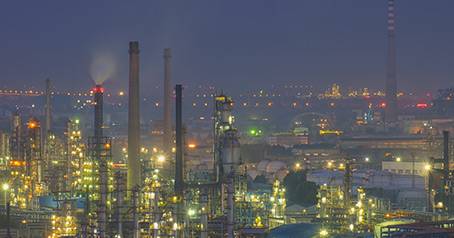Jul . 28, 2024 09:58 Back to list
Understanding the Benefits and Applications of PVC Irrigation Pipe in Modern Agriculture Techniques
The Advantages of PVC Irrigation Pipes
Irrigation is a crucial aspect of agriculture and gardening, as it ensures that plants receive the necessary water for growth, especially in regions with insufficient rainfall. Among the various options available for irrigation systems, PVC (Polyvinyl Chloride) pipes have emerged as a popular choice. Their durability, affordability, and ease of use make them an ideal solution for both large-scale farming and small home gardens. In this article, we will explore the numerous advantages of PVC irrigation pipes and why they are a preferred option for many agriculturalists and gardeners.
Durability and Longevity
One of the standout characteristics of PVC pipes is their durability. PVC is a robust material that can withstand various environmental conditions, including extreme temperatures and exposure to harsh chemicals. Unlike metal pipes, which can corrode or rust over time, PVC pipes maintain their integrity, which significantly extends their lifespan. This durability means that farmers and gardeners do not have to frequently replace their irrigation systems, ultimately saving them time and money.
Lightweight and Easy to Handle
Another significant advantage of PVC irrigation pipes is their lightweight nature. Compared to traditional materials like steel or concrete, PVC pipes are much lighter, making them easier to transport and install. This ease of handling is particularly beneficial during the installation phase of an irrigation system, as it reduces labor costs and time. Gardeners and farmers can quickly set up their irrigation networks, allowing for more efficient use of resources.
Cost-Effectiveness
PVC pipes are among the most cost-effective options for irrigation systems available on the market today. The manufacturing process of PVC is less expensive than that of other materials, leading to lower costs for consumers. Additionally, because PVC pipes are resistant to damage and require minimal maintenance, users can avoid the long-term expenses that come with maintaining other types of piping systems. This makes PVC irrigation pipes an attractive option for budget-conscious farmers wanting high-quality solutions.
pvc irrigation pipe

Versatility and Adaptability
PVC pipes are available in various sizes and lengths, making them suitable for a wide range of applications. Whether it’s for small garden beds or extensive agricultural fields, PVC pipes can be customized to meet specific irrigation needs. Furthermore, they can be easily cut and connected, allowing for a flexible redesign of the irrigation layout. This adaptability is essential for gardeners and farmers who may need to change their watering strategies based on seasonal or crop-specific requirements.
Resistance to Chemicals
In agriculture, irrigation systems often come into contact with fertilizers, pesticides, and other chemicals that can damage piping materials. PVC pipes, however, are resistant to many of these substances, ensuring that the pipes do not degrade or leach harmful substances into the water supply. This resistance not only prolongs the life of the irrigation system but also contributes to safer agricultural practices.
Environmentally Friendly Option
Lastly, PVC pipes are recyclable, which adds an environmental benefit to their use. Once they reach the end of their life cycle, PVC pipes can be repurposed into new products, reducing waste and promoting sustainable practices. Farmers and gardeners who prioritize eco-friendly practices can feel good about their choice of irrigation pipes.
Conclusion
In summary, PVC irrigation pipes offer numerous benefits that make them an excellent choice for anyone looking to improve their irrigation systems. Their durability, lightweight nature, cost-effectiveness, versatility, chemical resistance, and environmental friendliness make them a strong candidate for agricultural and gardening applications. As the demand for efficient and effective irrigation solutions continues to grow, PVC pipes stand out as a practical and sustainable option for modern farming and gardening.
-
Durable PP Rigid Sheet: Lightweight, Chemical Resistant Solutions
NewsAug.21,2025
-
PVC Grey Sheet for Extraction: Chemical Resistant & Durable
NewsAug.19,2025
-
Durable PVC Pipe Fittings for Plumbing & Irrigation Needs
NewsAug.18,2025
-
HDPE Steel Belt Reinforced Spiral Corrugated Pipe | High Strength
NewsAug.17,2025
-
HDPE Pipe Fittings: Durable, Leak-Proof Solutions
NewsAug.16,2025
-
Premium CPVC Sheet: High-Temp & Chemical Resistant Solutions
NewsAug.15,2025

